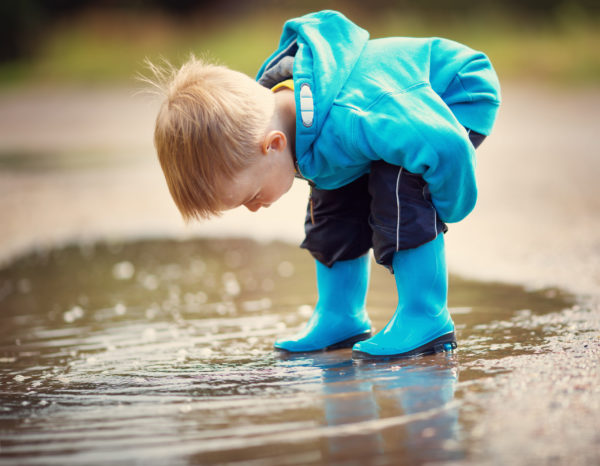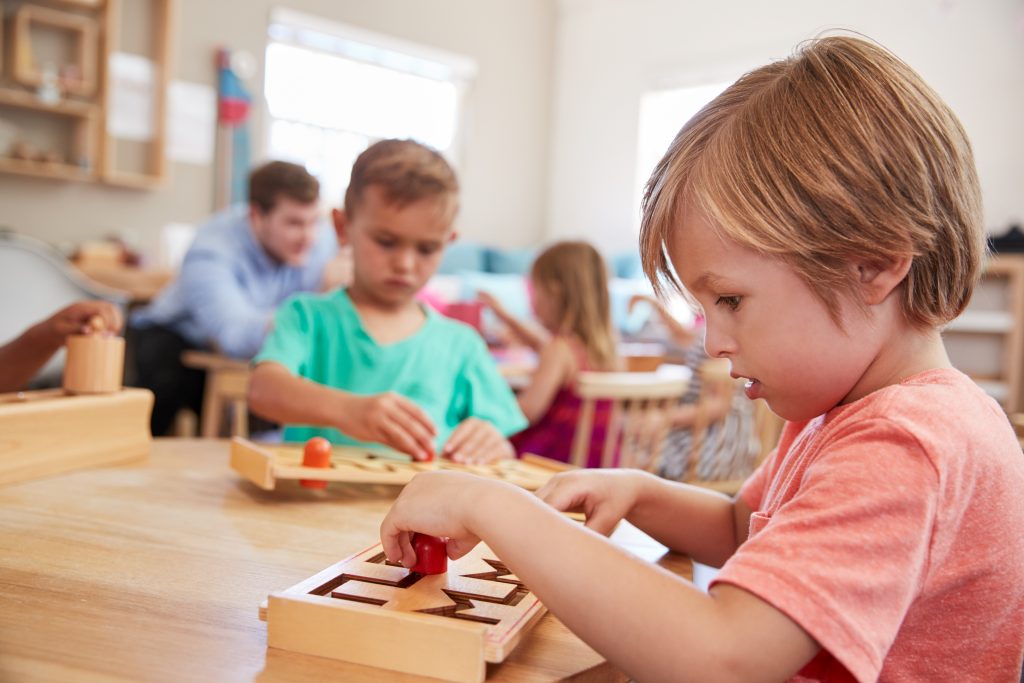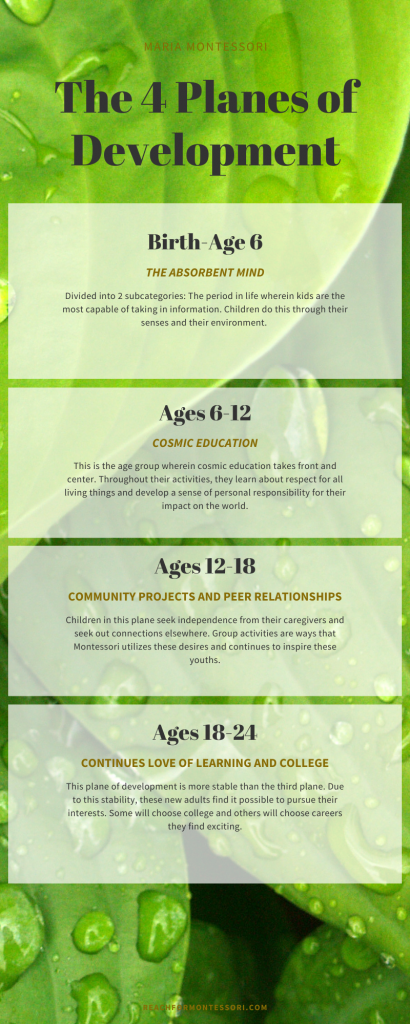In this article, learn all about the stages of development in Montessori, known as the 4 planes of development.
Learn what happens with a child's mental, emotional, and social development during each stage.
What are the 4 planes of development in Montessori?
Traditional education follows the idea that a child's development follows a steady, upward path.
Dr. Montessori had a different theory on how children are able to take in information; that it occurs in distinct upsurges referred to as the 4 planes of development.
Montessori's methods were designed to take full advantage of each plane of development.
She observed that children are beckoned by different activities and drawn to the development of new skills when given the proper opportunities.

It is a common misconception that there are only three planes of development.
Many bloggers and researchers tend to leave out the final plane. (It is important to note that the human brain isn't fully developed close to the age of 25 years.)
The first plane of development: Ages 0-6
This plane is the time of the absorbent mind. This plane of development is divided into two sub-planes and is marked by great physical and mental development.
Dr. Montessori understood that this is the period in life wherein kids are the most capable of taking in information.
Children do this through their senses and their environment.
Language skills, motor skills, the imitation of social skills. and the development of their expectations of how the world works develop during this plane.
The 0-3 sub-plane of development
During the first sub-plane of this stage, children take in information through the unconscious mind and the subconscious mind.
That is, children are not aware that they are learning. They are simply responding to their environment and sensory information.

Kids in this first sub-plane of the absorbent mind, though they may not be aware of the process of learning, are gathering information that is absorbed into their conscious mind.
Kids from 0-3 are easily distracted and pay close attention to the most minute details in their environment; anything that captures their interest.
This is often mistaken as a child having a short attention span, but the fact is they are taking in information rapidly, and from many things at once.
Fine motor and gross motor skills and other experiences are stored in the subconscious mind at this age.
This is why it is vital to provide a wide variety of sensory and motor experiences for the 0-3 child. You are setting the stage for their future learning.
The 3-6 sub-plane of development
This is the phase of conscious absorption.
Children at this stage are developing awareness of their choices and have the desire to perform activities that give them personal satisfaction and help them develop skills that interest them.
This sub-plane of the absorbent mind is considered to be the most crucial to a child's development.
You have probably noticed an abundance of Montessori programs for this age group. This is a testament to the value of Montessori learning specifically at this age!

Teachers and Montessori homeschooling parents invest time in preparing an environment that allows children to experience things of their own interests, and at their own pace.
Parents and teachers alike also take care to model the behavior they want the child to exhibit.
This is a time when the sensitive periods are observed and taken advantage of through opportunities in their environment.
Children are allowed to take advantage of these sensitive periods by following their interests.
The first plane of development is when a child goes through the phases of obedience and will end up, through a proper environment and proper guidance, with joyful obedience and self-discipline.
The second plane of development: Ages 6-12

During this stage, learning takes place at a more steady pace. Instead of working alone, kids often choose to work with other children and enjoy group projects.
They are learning social cues and how to get along with others. This is also the plane of development wherein kids become interested in their culture and their communities.
Montessori takes advantage of these interests by giving children a variety of opportunities to learn about their culture through their studies.
History, science, language arts, and geography are some of the subjects that help children in this plane gather this knowledge.
This is the age group wherein cosmic education takes front and center.
Throughout their activities, they learn about respect for all living things and develop a sense of personal responsibility for their impact on the world.
Toward the end of the second plane, children begin showing an interest in the world outside of their own cultures and communities.
This is a time when many Montessori schools take field trips and take the activities practiced in the classroom into their communities through volunteering and fundraising.
The third plane of development: Ages 12-18
This phase has some similarities to the first plane of development. Teenagers (as we all know) once again become a bit self-satisfied and often prefer to have alone time.
Learning often slows during this plane, as teenagers prefer to spend more time with their peers. They also, once again, need extra sleep and nutrition.
Children in this plane seek independence from their caregivers and seek out connections elsewhere.
Group activities are ways that Montessori utilizes these desires and continues to inspire these youths.
Community involvement and cosmic education are taken a step further in this plane. Extended community projects are one of the ways this occurs.
Volunteering for a few months at a homeless shelter is an example of a long-term community project.
The self-confidence and self-discipline developed in the earlier years have given these teens the tools they need to carry out these projects.
The fourth plane of development: Ages 18-24
This plane of development is more stable than the third plane. Due to this stability, these new adults find it possible to pursue their interests.
Some will choose college and some will choose to go straight into a career.
Thanks to the Montessori foundation, these adults will find pleasure and experience enthusiasm in being able to choose college classes that interest them or careers they enjoy!
Cheers and don't forget to subscribe!

Pingback: What is the Absorbent Mind? — The Montessori-Minded Mom